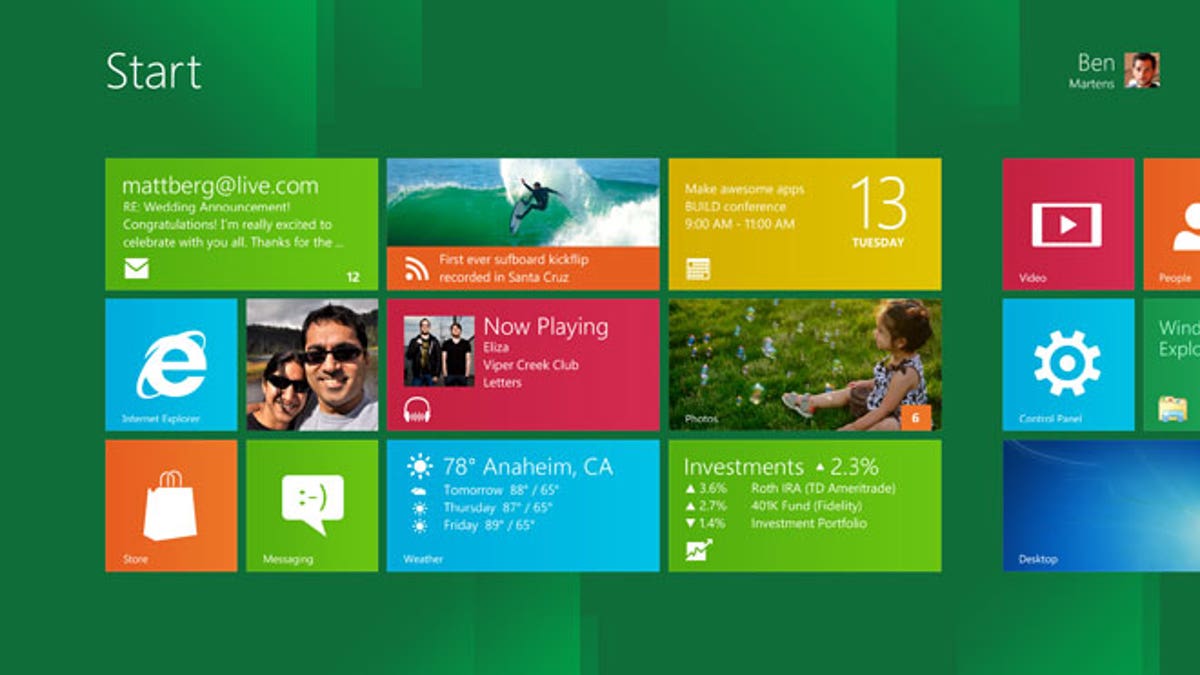
(Microsoft)
The biggest lawsuit in Microsoft’s history dominated the 90s, when the company battled accusations that it was stifling browser competition. Rival Netscape couldn't survive, but the Windows giant was ultimately forced to strip Internet Explorer from its operating system in a landmark ruling.
That conflict may be brewing up again.
Mozilla, the developer group behind the popular Firefox browser, argued Wednesday night that Firefox is being banned from certain versions of Windows 8, the forthcoming tablet-centric OS from Microsoft -- returning Windows users to the dark ages before competition.
“The upcoming release of Windows … and Microsoft’s browser practices regarding Windows 8 Metro signal an unwelcome return to the digital dark ages where users and developers didn’t have browser choices,” wrote Harvey Anderson, Mozilla general counsel, in a Wednesday night blog post.
[pullquote]
A Microsoft spokesman declined FoxNews.com requests for more information. But the competition had plenty to say.
Facebook mobile apps: Bad on purpose?
Anderson argued that Windows 8 RT -- a version of the Windows OS rewritten from the ground up to support the ARM processors powering nearly every tablet and smartphone today -- prohibits any browser but Internet Explorer from running the classic Windows desktop.
“This means that only Internet Explorer will be able to perform many of the advanced computing functions vital to modern browsers in terms of speed, stability, and security to which users have grown accustomed.”
“Given that IE can run in Windows on ARM, there is no technical reason to conclude other browsers can’t do the same,” Anderson wrote.
His words were emphatically echoed by Google, maker of the Chrome browser.
“We share the concerns Mozilla has raised regarding the Windows 8 environment restricting user choice and innovation,” a Google spokeswoman told FoxNews.com. “We've always welcomed innovation in the browser space across all platforms and strongly believe that having great competitors makes us all work harder."
40 percent of 911 calls mistakenly "butt-dialed"
"In the end, consumers and developers benefit the most from robust competition.”
The issue is how the application is written. Some Windows apps rely on the powerful Win32 APIs Microsoft has built for programmers, apps like Adobe Photoshop and Microsoft Word. They won’t run on ARM-powered Windows devices (basically any Windows tablets).
Those APIs are necessary for modern browsers, argued Mozilla spokesman Asa Dotzler -- and only Internet Explorer will have access.
“Without that access, no other browser has a prayer of being competitive with IE,” he wrote.
Windows on ARM, or Windows 8 RT, is clearly planned for tablets, and the forthcoming OS has been redesigned to support such devices, with a brand new touch interface called Metro. Anderson said he worries about the larger market.
"The forecast suggests ARM [chips] will move into traditional PCs and laptops," he told FoxNews.com. ARM chips are already in servers, he noted.
"Our concern is that, as ARM transitions into traditional PC and laptops, we could end up in a place where because it’s Windows RT, there’s no browser choice."








































